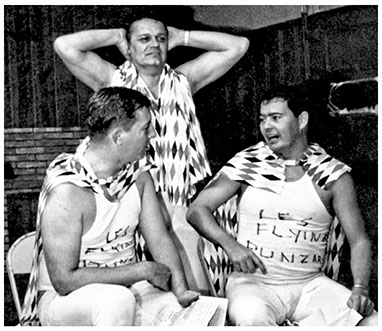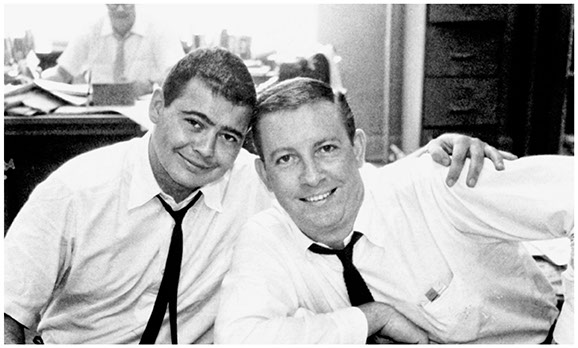
Connecting Texas books and writers with those who most want to discover them


TRAVELING?
Don't miss our
Top Bookish
Destinations

Lone Star Book Reviews
By Michelle Newby, NBCC
Contributing Editor
 Michelle Newby is contributing editor at Lone Star Literary Life, reviewer for Foreword Reviews, freelance writer, member of the National Book Critics Circle, and blogger at www.TexasBookLover.com. Her reviews appear or are forthcoming in Pleiades Magazine, Rain Taxi, World Literature Today, South85 Journal, The Review Review, Concho River Review, Monkeybicycle, Mosaic Literary Magazine, Atticus Review, and The Collagist.
Michelle Newby is contributing editor at Lone Star Literary Life, reviewer for Foreword Reviews, freelance writer, member of the National Book Critics Circle, and blogger at www.TexasBookLover.com. Her reviews appear or are forthcoming in Pleiades Magazine, Rain Taxi, World Literature Today, South85 Journal, The Review Review, Concho River Review, Monkeybicycle, Mosaic Literary Magazine, Atticus Review, and The Collagist.
Lone Star Book Reviews
of Texas books appear weekly
at LoneStarLiterary.com
Gary Cartwright grew up in West Texas and Arlington and was the first member of his family to graduate from college, and after a stint at TCU, UT, the military, and TCU again, he received a B.A. in journalism and government from Texas Christian University in 1957.
Cartwright reported the police beat for the Fort Worth Star-Telegram from 1956 until he was hired away in 1958 to the Fort Worth Press, where he joined Dan Jenkins and Bud Shrake in the sports department under legendary Texas sportswriter Blackie Sherrod. In 1960, Cartwright moved to the Dallas Times Herald as a sports reporter and in 1963 he joined the Dallas Morning News to write his own sports column.
Cartwright's first book, a football novel entitled The Hundred Yard War, was published in 1967, at which point he left newspaper work to become a freelance writer. His work has appeared in The Texas Observer, Esquire, Saturday Review, Rolling Stone, and Texas Monthly.
Cartwright has been associated with Texas Monthly magazine since its inception in 1973. His articles range over various topics — crime, notable Texans, Texas culture, travel, sports and international travel. A collection of his Texas Monthly articles can be found in his Confessions of a Washed-up Sportswriter. His true-crime books Blood Will Tell and Dirty Dealing began as articles for Texas Monthly.
In 1988, Cartwright had a heart attack that required quintuple-bypass surgery. A suggestion by Governor Ann Richards to document changes in his life since the injury led to another book, HeartWiseGuy.
Among the many honors Cartwright has garnered for his writing are the Texas Institute of Letters' Stanley Walker Award for Journalism for "The Endless Odyssey of Patrick Henry Polk" (Texas Monthly, May 1977) and the Press Club of Dallas Katie Award for Best Magazine News Story for "The Work of the Devil" (Texas Monthly, June 1989). Cartwright has written screenplays in collaboration with Edwin (Bud) Shrake, including J. W. Coop (1972) and Another Pair of Aces (CBS-TV, 1990).
Cartwright and Shrake were lifelong best friends, and by the late sixties they were founders and leaders of the equivalent of Texas’s Beats, Mad Dog, Inc. The band of rebellious artists — mainly writers and journalists but also musicians and painters — lived in Texas, primarily in Austin, in the late 1960s and early 1970s and partied and wrote in an identifiably Texan, outlaw manner. Members included Cartwright and his wife Phyllis; novelist and screenwriter Shrake; Dennis Hopper, who starred in Kid Blue (1973), a movie that Shrake wrote; Marvin Schwarz, who produced the movie; actors Peter Boyle and Warren Oates, also in Kid Blue; Willie Nelson; Jerry Jeff Walker (and later, his wife Susan); Peter and Jody Gent (Peter Gent is the author of the classic football satire North Dallas Forty and a former Dallas Cowboys wide receiver); Billy Brammer, author of The Gay Place; painter and sculptor Fletcher Boone; labor lawyer David Richards and his wife, Ann, who would become the governor of Texas; Larry L. King; and Threadgill's proprietor Eddie Wilson, among others. Once a Mad Dog always a Mad Dog, but the hotbed of Mad Dog activity has long since passed. The unofficial anthem of Mad Dog was said to have been the Jerry Jeff Walker version of "Up Against the Wall, Redneck Mother."
(Information compiled from Steven L. Davis, Texas Literary Outlaws: Six Writers in the Sixties and Beyond; J. Dunston Milner, Confessions of a Mad Dog; Cartwright Archives, University of Texas; The Wildcatter Exchange website; Gary Cartwright, The Best I Recall.)
Gary Cartwright
Austin: University of Texas Press
978-0-292-74907-8, hardcover, $27.95
272 pages; with photos
June 1, 2015
The Best I Recall, the latest release in the Charles N. Prothro Texana Series from the University of Texas Press, is the much-anticipated memoir by Texan, journalist, novelist, screenwriter, and chameleon Gary Cartwright. During his fifty-year-career, beginning with the police beat for the Fort Worth Star-Telegram in 1956, Cartwright has written about everything from crime and politics to sports and travel (to name a very few), for the Dallas Morning News, Sports Illustrated, Texas Observer, Texas Monthly, Rolling Stone, Harper’s, and National Geographic Traveler, among many, many other publications. He is the winner of a Dobie-Paisano Fellowship and numerous awards, including an Edgar and the Lon Tinkle Award for lifetime achievement from the Texas Institute of Letters.

The Best I Recall is an earnest and painfully honest (“…that’s who I was – who I am – careless, self-centered, impulsive, and egotistical beyond all telling.”) but rather ordinary account of an extraordinary life. It’s the story of the evolution of an innocent. “We were a generation in which sex, drugs, and rock ’n’ roll had replaced sock hops, Juicy Fruit, and Patti Page.” The often sobriety-challenged Cartwright’s list of friends and acquaintances includes famous and/or infamous names every Texan recognizes: Blackie Sherrod, Dan Jenkins, Jack Ruby, Lamar and Bunker Hunt, Billy Lee Brammer, Don Meredith, Larry L. King, Warren Burnett, Ann Richards, Willie Nelson and, of course, his soul mate, Bud Shrake. Cartwright knows which closets the skeletons can be found in.

Above: Bud Shrake and Gary Cartwright wake the future governor as the Flying Punzars.
The book flows intuitively with each part signifying the beginning of a new era in his career. Cartwright spends adequate space on his favorite stories over the years. Two of his investigations helped free inmates from prison and he says that “…nothing in my career as a writer-journalist has given me greater satisfaction.” Cartwright glories in exposing with sardonic wit the absurdities so abundant in hoary Texas tropes. For instance, he writes of Dallas in 1963: “Right-wing nutcases had captured Dallas, which was ripe for the taking. Today, Dallas is one of my favorite cities, but back then it had the heart of a weasel.”
Right: The original staff of Texas Monthly, 1974. Editor William Broyles is on the front row in a sweater. Cartwright is on the back row behind Gregory Curtis, who would follow Broyles as editor.

Cartwright is most eloquent when writing about health and mortality (“When you’ve lived life to the max, dying seems especially slow and clumsy and mean”), his craft (“And yet, and yet … against all logic we go on tinkering with words, moving them about, listening to their cadence, standing them on their heads, turning them inside out, waiting, hoping, praying”) and Willie Nelson (“The rules were mapped on his face and crusted in his voice, which has always seemed less melodic by daylight”).
Four marriages and three children later, Cartwright has mellowed some (“What seemed like a grand journey into the all-knowing was actually double time to nowhere”). The older and maybe wiser Cartwright writes of his health woes that they have “encouraged in me two virtues that had never troubled me before — patience and humility.” Others have made this comparison but it is apt — Cartwright is Texas’s answer to Hunter S. Thompson. What a long, strange trip it’s been.

Above: A rare appearance of the original Flying Punzars, a satirical acrobatic group, with Blackie Sherrod, Bud Shrake, and Gary Cartwright.
Below: Bud Shrake and Gary Cartwright met in the late fifties and became friends as sportswriters. By the late sixties they were leaders of Texas’s beats, Mad Dog, Inc.

(Photos courtesy of University of Texas Press)
* * * * *

![]()
![]() LONE STAR LITERARY LIFE copyright © 2015–18 Paragraph Ranch LLC • All rights reserved • CONTACT US
LONE STAR LITERARY LIFE copyright © 2015–18 Paragraph Ranch LLC • All rights reserved • CONTACT US

